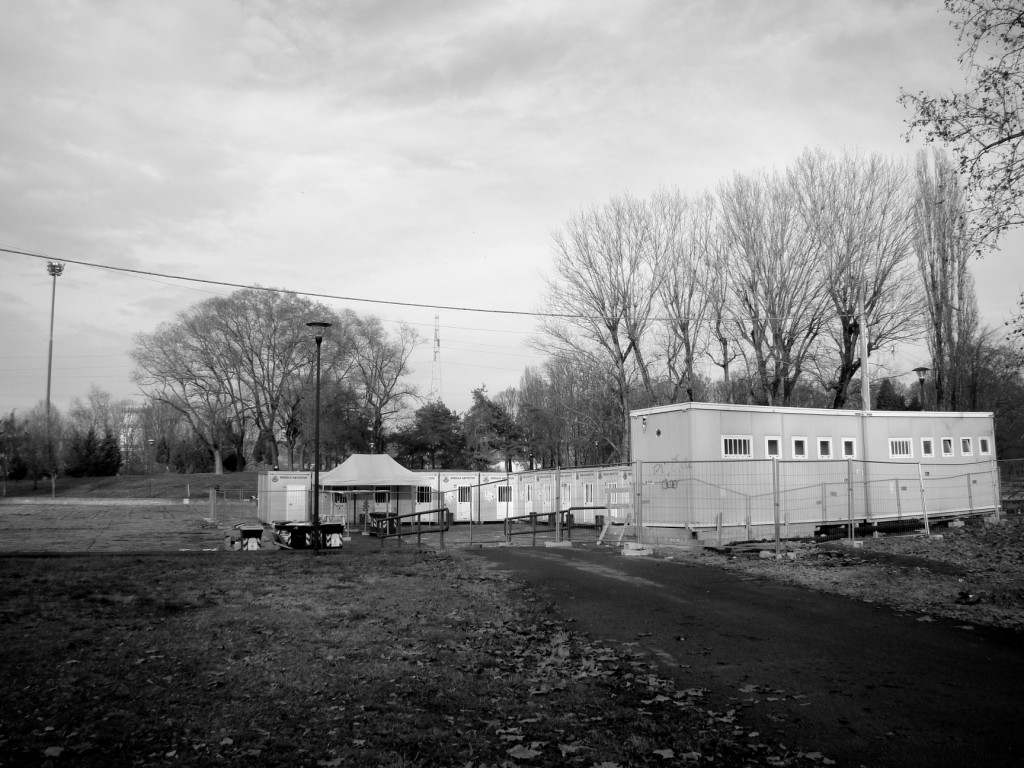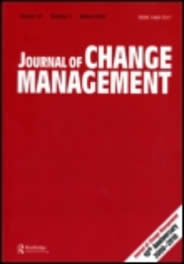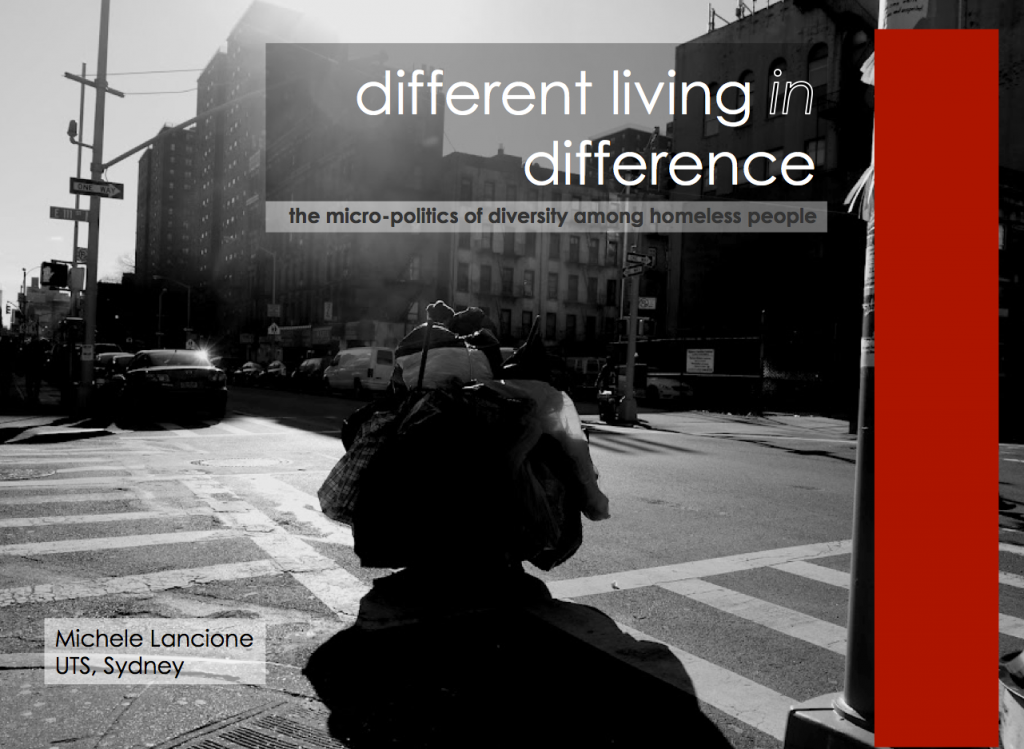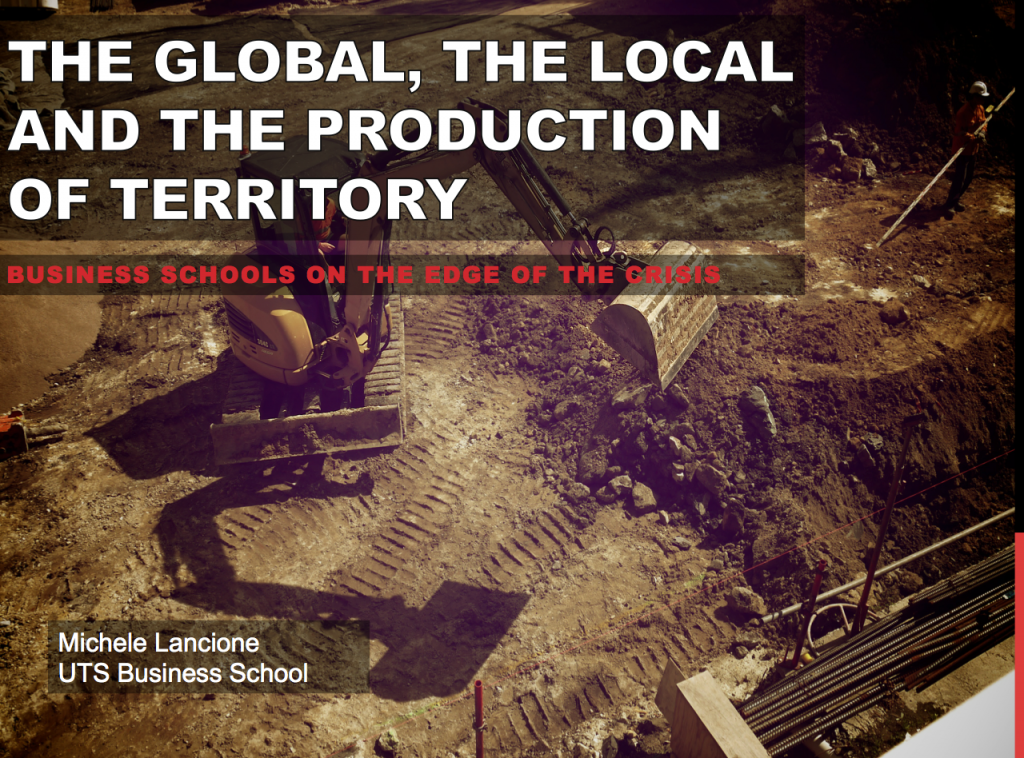
City has recently published one of my paper on homelessness, from my 2010 fieldwork in Turin, Italy. The paper can be downloaded here, below is the abstract.
Lancione, M. (2014), Assemblages of care and the analysis of public policies on homelessness in Turin, Italy, City, 18:1, 25-40
This paper investigates the ways urban policies on homelessness are discursively framed and practically enacted in Turin, Italy. The notion of ‘assemblages of care’ is introduced to show how these policies contribute to the constitution of different experiences of homelessness, by means of their discursive blueprints and practical enactments. Relying on 10 months of ethnographic fieldwork, the paper questions four policies. Three of these interventions are found to have negative impacts on homeless people’s emotions and ways of life; the remaining policy, I argue, holds the potential to produce alternative assemblages and more positive engagement with the individuals encountered. The conclusion provides more general critical reflections on urban policy and homelessness.





